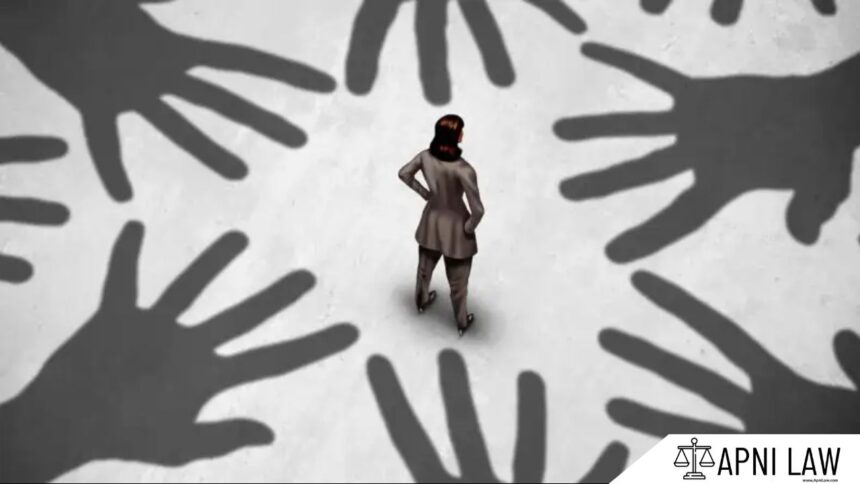This article is written by Atishay Jain, a former UPSC aspirant and a core member of the ApniLaw team. With a keen interest in public law and workplace rights, he brings clarity to complex legal topics like the POSH Act. For any personal queries or suggestions, feel free to reach out to us through our official channel.
Introduction
The Sexual Harassment of Women at Workplace (Prevention, Prohibition and Redressal) Act, 2013, commonly known as the POSH Act, provides a robust legal framework to address workplace sexual harassment. Sections 9, 11, and 13 of the POSH Act outline the procedure for filing a complaint, the inquiry process, and the post-inquiry actions. These sections empower women to report misconduct and ensure that employers take appropriate disciplinary and compensatory actions. Understanding these provisions helps both employees and employers comply with the law and create a safer work environment.
How To File A Complaint of Sexual Harassment Under Section 9?
- Any aggrieved woman can file a written complaint of sexual harassment at the workplace.
- She must submit the complaint to the Internal Committee (IC) or the Local Committee (LC) within 3 months of the incident.
- If it involves multiple incidents, the 3-month period starts from the last incident.
- On situations where she cannot write the complaint, the Presiding Officer or Committee Member must assist her.
- IC or LC can extend the time limit by up to 3 more months if valid reasons are recorded in writing.
- If the woman cannot file the complaint due to physical or mental incapacity, death, or other reasons, her legal heir or a prescribed person can file it on her behalf.
How Does The Inquiry into Complaint Work Under Section 11?
- IC or LC must start inquiry as per the respondent’s service rules.
- If no service rules apply, follow the prescribed procedure.
- If the respondent is a domestic worker and a prima facie case exists, LC must forward the complaint to the police within 7 days.
- The police must register the case under IPC Section 509 (now relevant section of BNS) and other relevant laws.
- If settlement terms (under Section 10) are violated, IC or LC must begin inquiry or refer the matter to the police.
- Whether both parties are employees, both must be heard and given the inquiry report for representation.
- If the respondent is convicted, the court may order compensation to the aggrieved woman, as per Section 15.
During inquiry, IC or LC has powers similar to a civil court under the Civil Procedure Code, 1908:
- Summon and examine persons under oath
- Demand document production
- Handle other prescribed matters
- IC or LC must complete the inquiry within 90 days.
What Is The Action After Inquiry Mentioned Under Section 13?
- After completing the inquiry, IC or LC must submit the findings to the employer or District Officer within 10 days.
- The report must be shared with both parties.
- If the allegation is not proved, IC or LC recommends no action.
- If the allegation is proved, IC or LC recommends:
- Action against the respondent as per service rules.
- Deduction of compensation from the respondent’s salary to pay the aggrieved woman or her legal heirs, under Section 15.
- If salary deduction isn’t possible (due to absence or end of employment), respondent must pay the sum directly.
- If respondent fails to pay, IC or LC can send the recovery order to the District Officer.
- The employer or District Officer must act on the recommendation within 60 days.
Conclusion
Sections 9, 11, and 13 of the POSH Act ensure timely redressal of sexual harassment complaints at the workplace. They define a clear process for lodging complaints, conducting inquiries, and enforcing outcomes. With strict timelines and enforceable recommendations, the Act mandates accountability and protection for women. Employers must implement these rules effectively to foster a respectful and secure workplace. Staying informed about these provisions is crucial for legal compliance and workplace safety.








